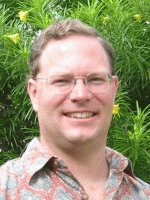Event Date:
Event Location:
- Buchanan Hall 1930
Professor Jordan Clark will give a talk at Thursday's Geography Colloquium entitled Hydrologic Tracers and Managed Aquifer Recharge (MAR) in Southern California.
Abstract:
Managed aquifer recharge (MAR) is the name for human activities taken to inject various types of surface waters into aquifers for storage, treatment, and later withdrawal and use. MAR has become one of the most active operations in conjunctive surface water/groundwater management in California and other western states. Hydrologic tracers are dissolved chemicals or gases, including water temperature in some cases, used to track down the transport of recharged groundwater as part of MAR activities. Dr. Jordan Clark will cover the principles of the use of hydrologic tracers in MAR and provide examples of tracers’ applications at major MAR facilities in southern California.
Bio:
My research is focused on understanding hydrological and geochemical interactions that occur near the earth's surface and the effects of external anthropogenic and climatic forcing on these interactions. I use geochemical tracers (both trace solutes and isotopes) in my investigations of earth surface processes. During the last decade, isotope hydrology as a sub-field has matured significantly and can now be used to addresses a significant number of new problems relating to hydrology and near surface processes. I believe it is important to work on fundamental aspects of regional environmental problems and I spend about half of my time on this type of research. My graduate studies on the Hudson River and, more recently, my research on Aquifer Storage and Recovery in California and aspects of the study on natural marine hydrocarbon seepage are examples of this effort. The remainder of my research time is spent examining geochemical problems related to global cycles and climate change (both recent and glacial/interglacial). My research on the hydrochemistry of springs, paleo-proxy data stored in groundwater, and methane emissions from hydrocarbon seepage illustrate this effort. Although my work examines problems in different environments, it is united by a common set of questions: how do transport processes affect water chemistry and quality and what are the impacts of climate change and other anthropogenic forcing on water chemistry and flow.

